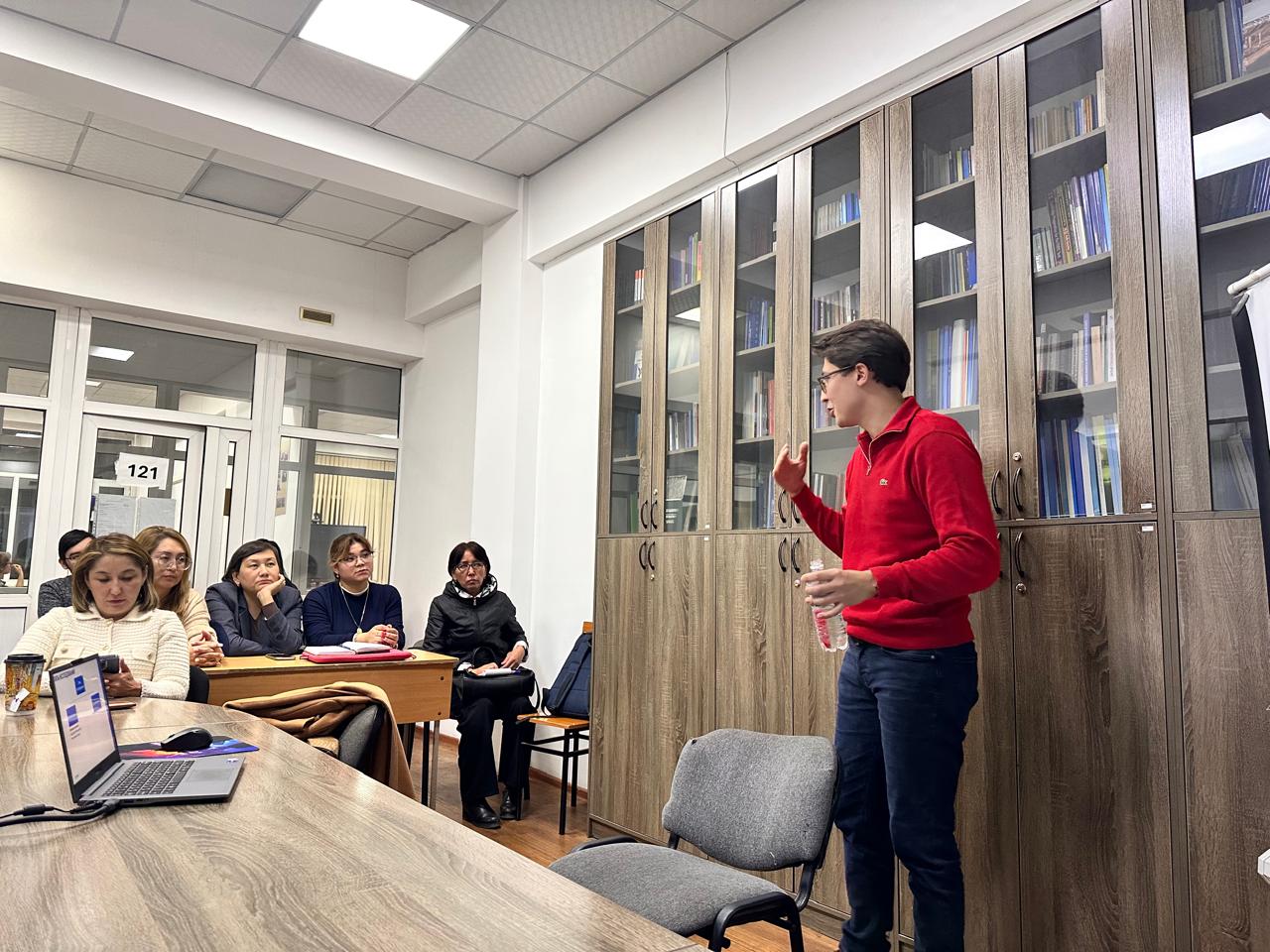- Main
- News
- Round Table "Principles of Conducting Quantitative and Qualitative Research" in the Context of Achieving the Sustainable Development Goals (SDGs)
Round Table "Principles of Conducting Quantitative and Qualitative Research" in the Context of Achieving the Sustainable Development Goals (SDGs)

On November 12, 2024, the Faculty of Philosophy and Political Science at Al-Farabi Kazakh National University hosted a round table on the topic "Principles of Conducting Quantitative and Qualitative Research." The event brought together students and young researchers interested in sociological research methods and their application for addressing social challenges within the framework of achieving the Sustainable Development Goals (SDGs).
The speaker was Kirill Kartashov, Strategy & Insights Manager at Danone (Central Asia and the Caucasus). He has extensive experience conducting sociological and marketing research in countries such as Kazakhstan, Belarus, Azerbaijan, Georgia, Mongolia, Uzbekistan, Tajikistan, Turkey, Algeria, Morocco, Egypt, and Nigeria. Over his career, Kirill has conducted more than 70 focus groups and 130 in-depth interviews, exploring a wide range of topics, including social and economic aspects directly related to the Sustainable Development Goals.
In his presentation, he focused on the types of data used in sociological research, including primary and secondary data, and emphasized the importance of accurate data collection for achieving the following SDGs:
- SDG 4 (Quality Education): The use of quantitative and qualitative research methods allows for a deeper understanding of barriers and opportunities in accessing education and helps develop policies aimed at improving educational conditions.
- SDG 8 (Decent Work and Economic Growth): Data collected through sociological research enables the assessment of working conditions and economic activity of the population, helping to formulate recommendations to increase employment and promote sustainable economic growth.
- SDG 10 (Reduced Inequality): Qualitative and quantitative methods allow for the study of factors influencing social and economic inequality and for evaluating measures to reduce it among different social groups.
Special attention was given to the differences between quantitative and qualitative research methods. Quantitative research (methods such as PAPI, CAPI, and CATI) facilitates the collection of large volumes of data, which is essential for tracking SDG progress at the regional and national levels. Qualitative research (focus groups and in-depth interviews) provides deeper insights into the perceptions and needs of target groups, which is particularly important for addressing issues related to equality, sustainable community development, and inclusiveness. The speaker also shared practical advice on implementing sociological projects, highlighting the need for data representativeness and appropriate audience selection, which is critical for obtaining objective data to assess SDG achievements. He also recommended using data analysis software (SPSS, R, Python), which enables efficient data processing and helps make well-grounded decisions within the framework of sustainable development. The round table served as an important platform for students and young researchers, giving them an opportunity to understand how sociological methods can be applied to address SDG-related challenges and how their work can contribute to achieving a sustainable and inclusive society.
Organizer: M.A. Akmadi

